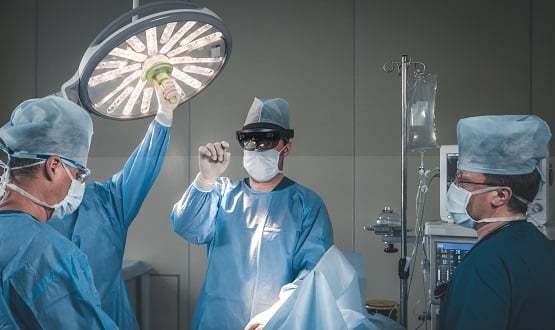Computer Motion Recieves $2m Grant for Telesurgery Training
- 5 November 2001
Computer Motion, Inc., the world’s leading developer of surgical robotic systems, has been awarded a $2m research and development grant from the US Department of Commerce, and National Institute of Standards (NIST) to combine surgical robotic systems with telemedicine to train surgeons in new procedures.
According to the NIST grant proposal the potential market opportunity for tele-collaboration in medicine and surgery exceeds one $1 billion per year.
Computer Motion will work with researchers from Michigan State University and the University of California, to collaborate on the development of systems to allow expert surgeons to closely guide trainee surgeons through complex minimally invasive surgical procedures.
The proposed system is based on the integration of four of Computer Motion’s FDA cleared robotic surgical systems and features the Zeus system modified to include two identical surgeon consoles with shared control of a single set of "arms" that are used to operate on the patient.
Crucially, system to be developed will include "haptic" feedback so that trainee surgeons can actually feel their mentor’s actions through the console controls and experience surgery through the hands of an expert.
Yulun Wang, Ph.D., Founder and Chief Technical Officer of Computer Motion said that by combining forces with leading researchers at institutions like UCLA, UCSB, and Michigan State University, Computer Motion "will be able to accelerate the speed with which we can drive new product research and development".
Dr Peter Schulam, chief of the division of endourology and laparoscopy at UCLA Medical Centre and the lead clinical investigator of the grant said, "Less invasive surgery brings significant benefits to patients including faster recovery times and reduced pain and trauma. However, the demand for surgeon training far outpaces the time that experts have to train surgeons in these new procedures."
Dr Schulam added, "The shared-control robotic system to be developed with this grant will let experts give the fundamental physical interaction, that is critical for training, to more surgeons while eliminating the demand of travel time on their schedules."
Steven Butner, Ph.D., Professor of Electrical & Computer Engineering at University of California Santa Barbara said the introduction of "force feedback" will create a new paradigm in telesurgery.
"This project is poised to make fundamental contributions in the teaching and mentoring of minimally invasive surgical techniques. The availability of equipment that will facilitate cooperation between student and mentor surgeons could revolutionize the way surgeons develop and learn new MIS procedures."
The NIST Advanced Technology Program (ATP) is designed to accelerate the development of innovative technologies that promise significant commercial payoffs and widespread benefits for the nation.
In September 2001, a specially modified non-FDA cleared ZEUS system performed the world’s first transatlantic telesurgery. The system was used by surgeons operating from a console in New York to remove the gallbladder of a patient located in France.




